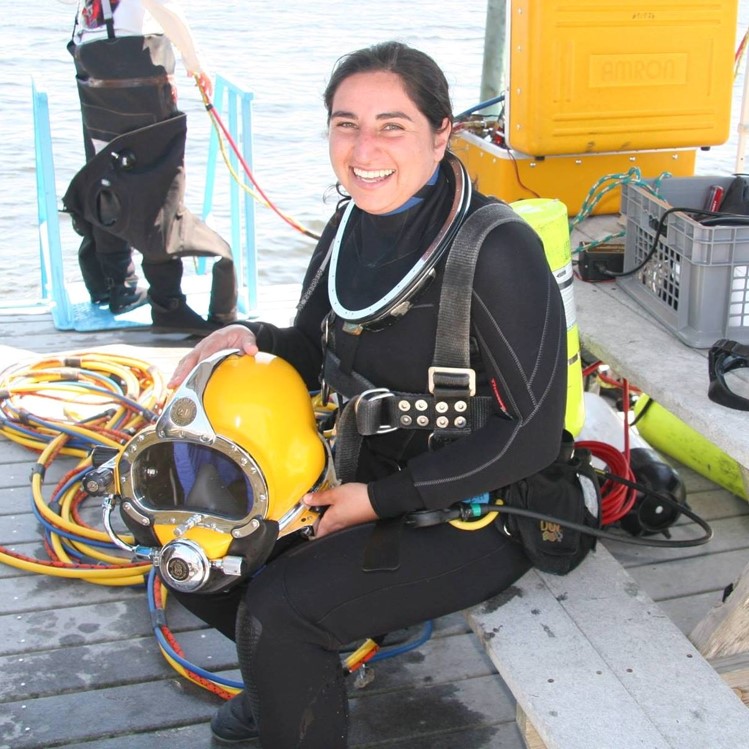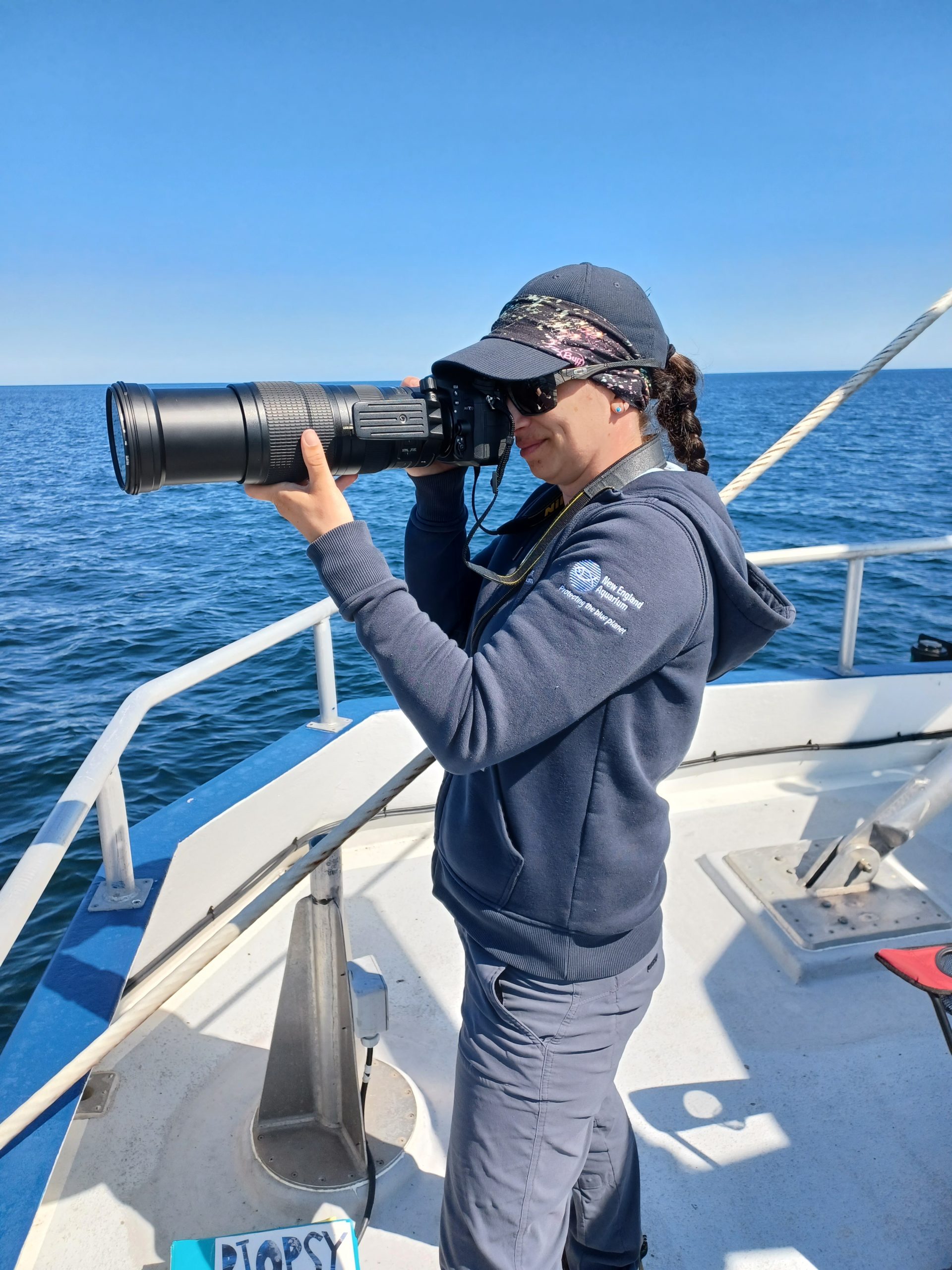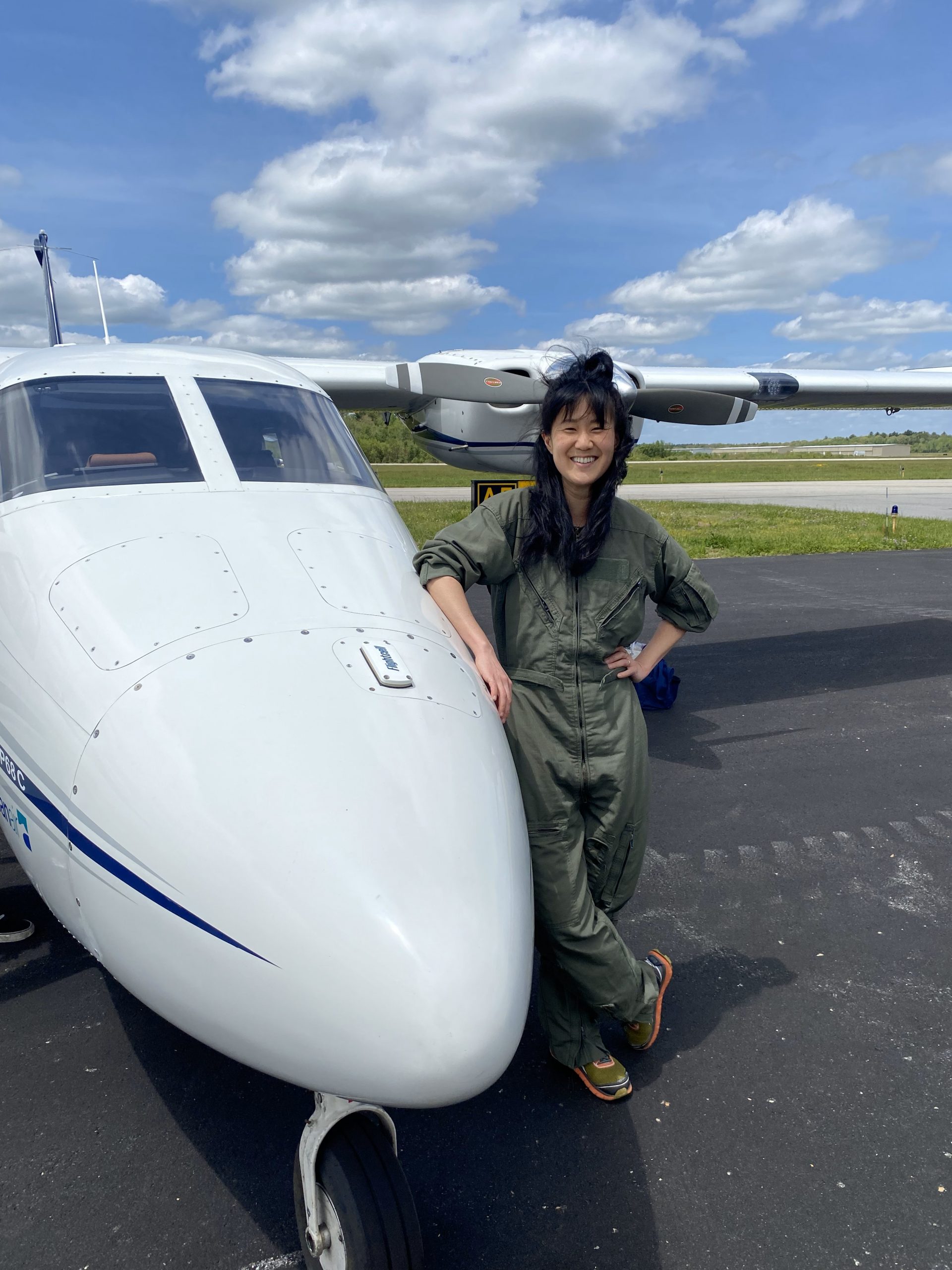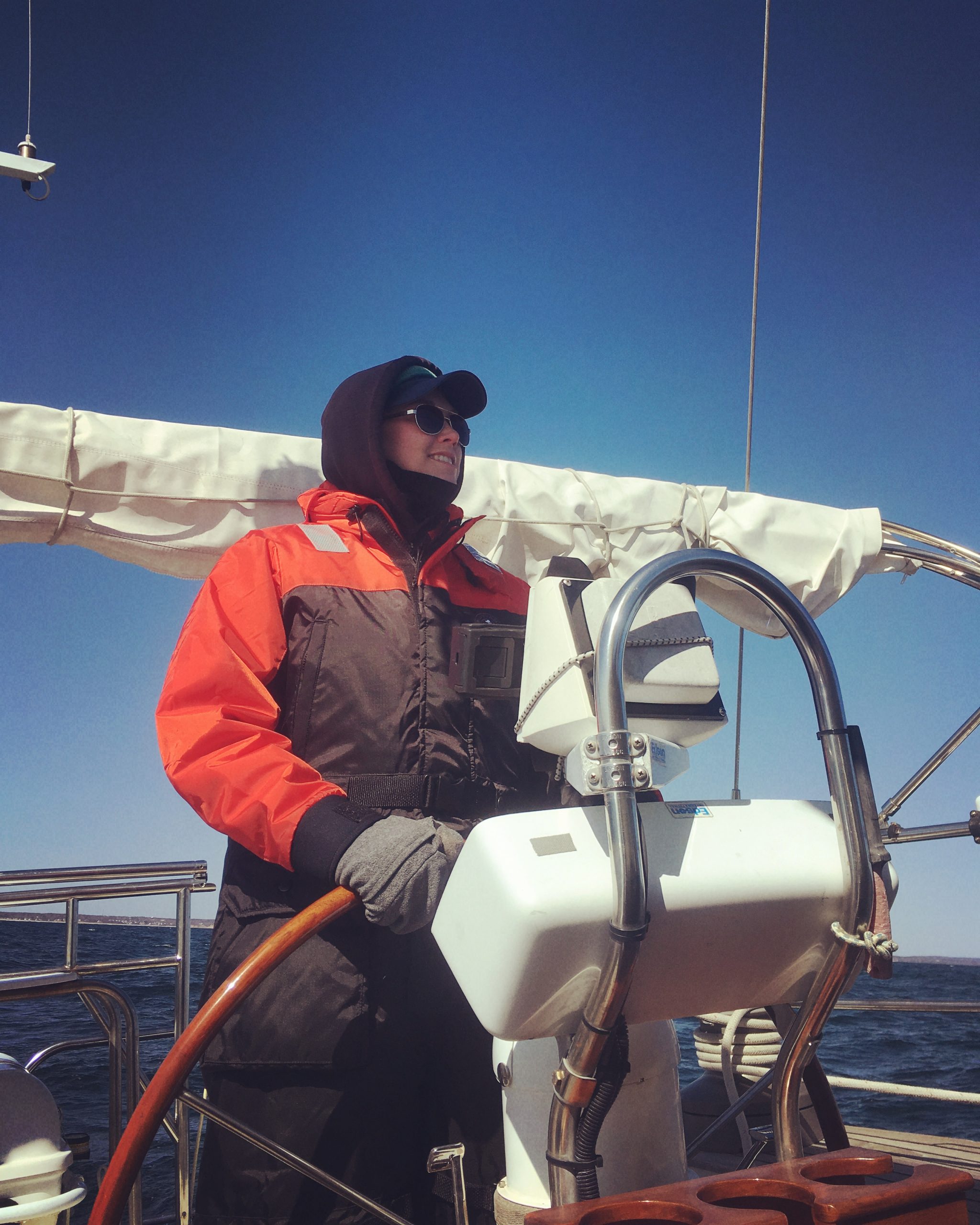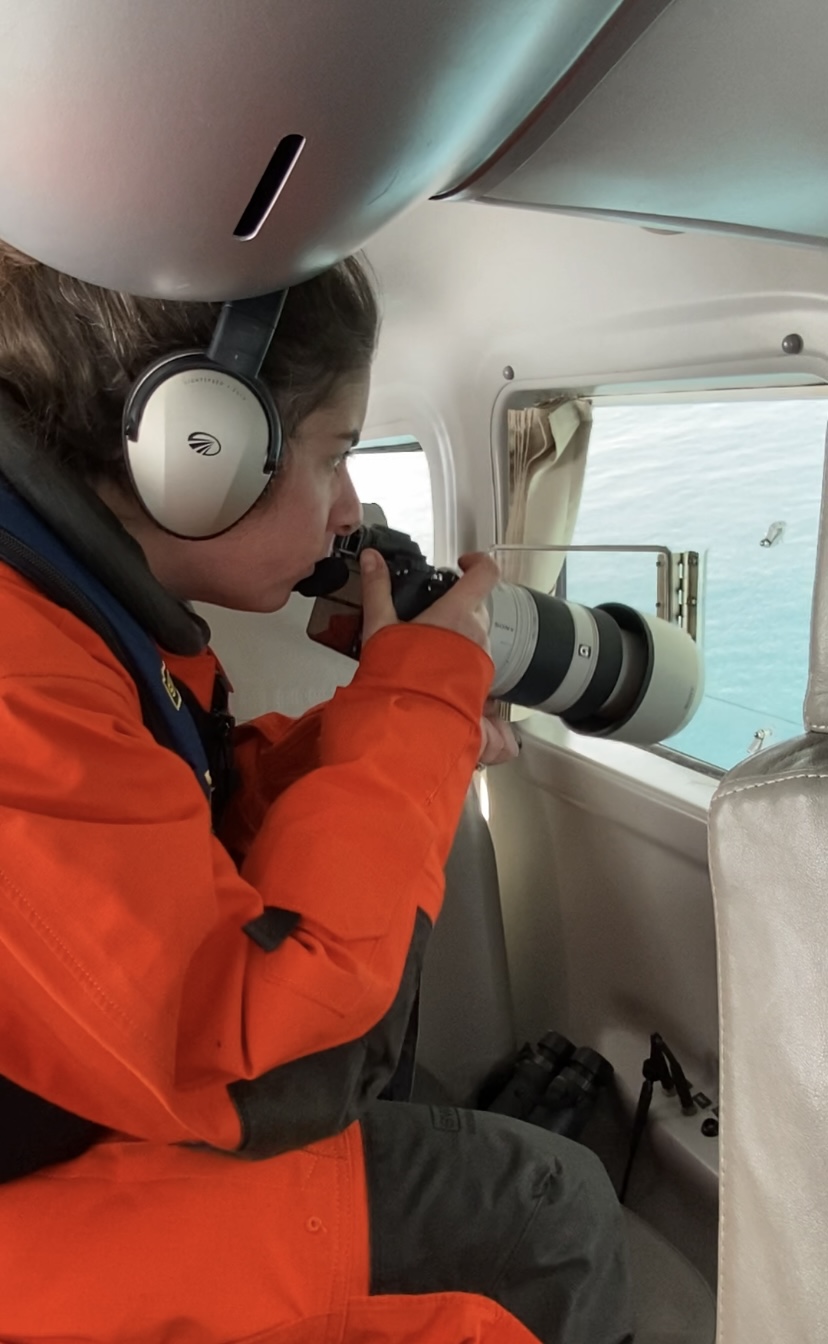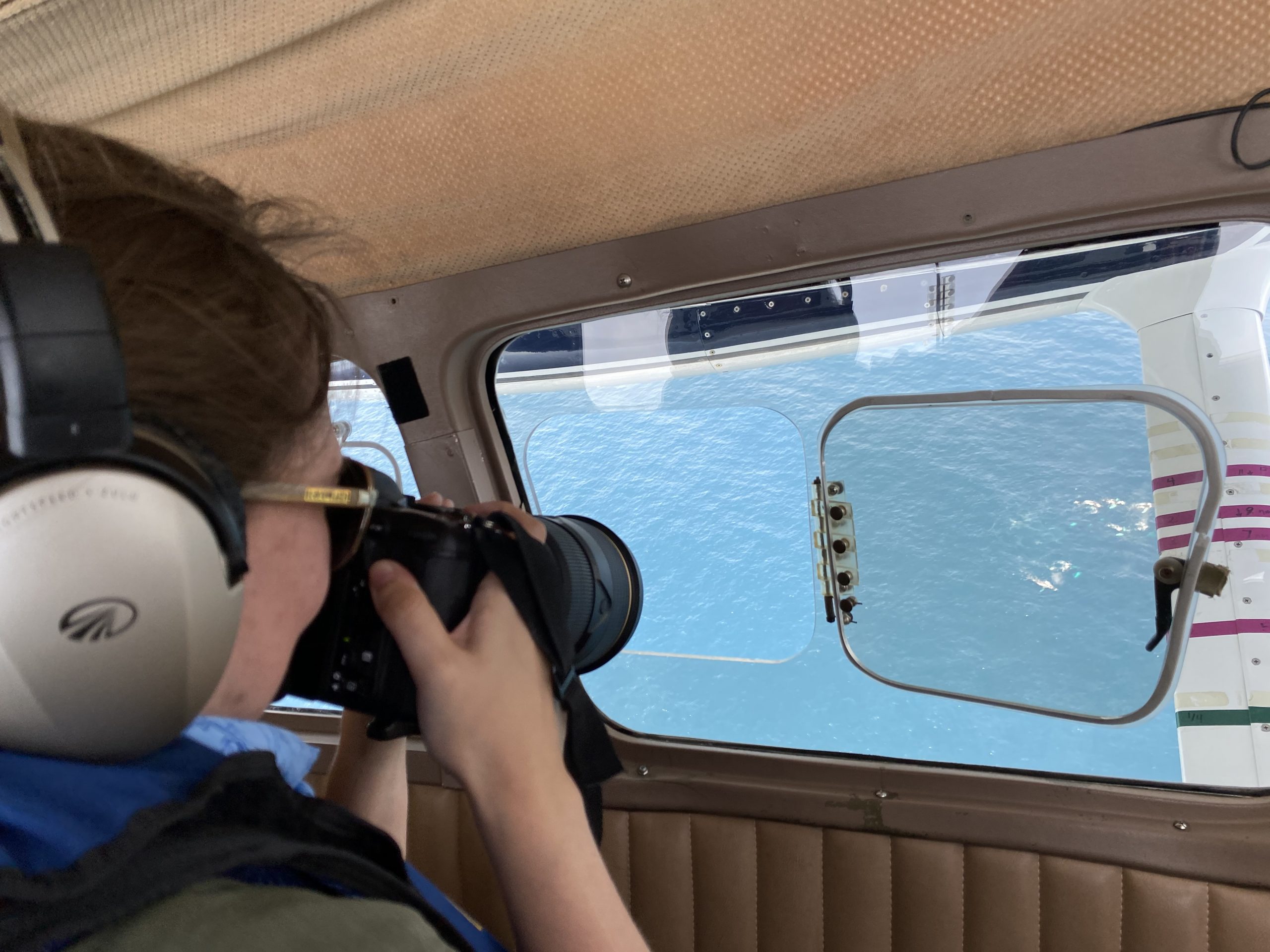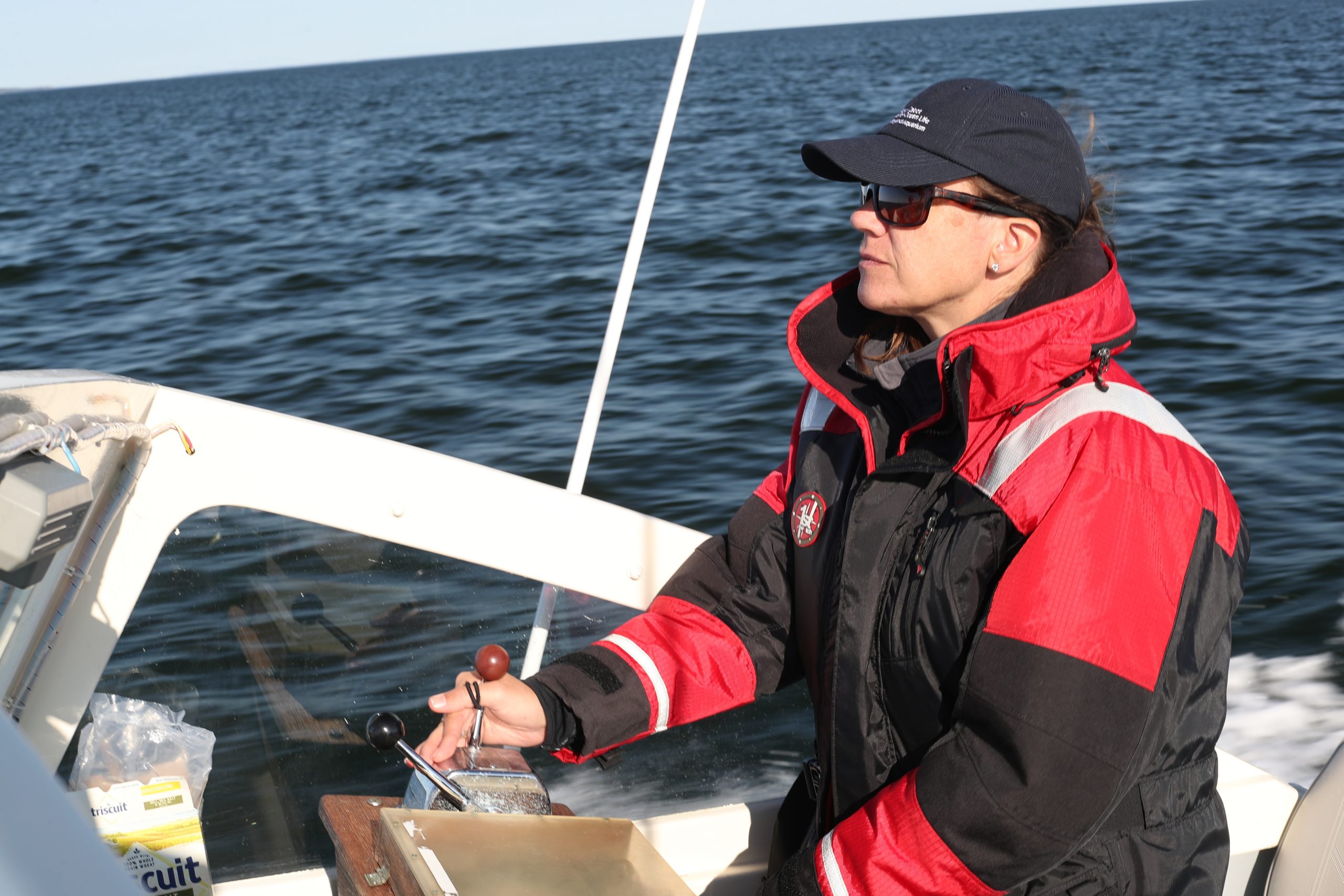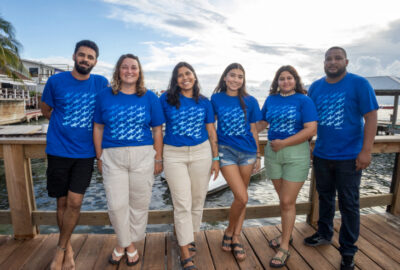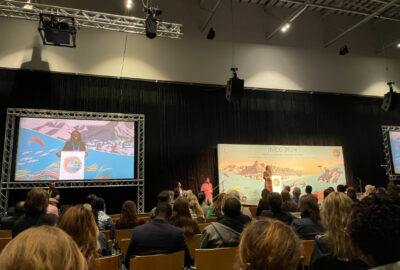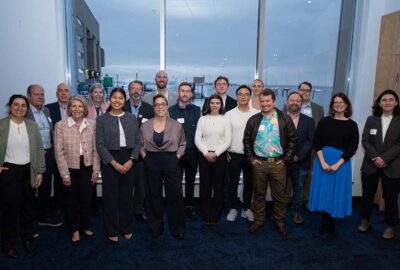The Aquarium will be closed to the public on Wednesday, April 2, for an internal staff event. Regular operating hours will resume on April 3.
Celebrating Women in STEM
By New England Aquarium on Friday, March 24, 2023


For Women’s History Month, we’re spotlighting a few of the women at the Aquarium who work each day protecting our blue planet. Meet these amazing scientists from our Anderson Cabot Center for Ocean Life, see how they got started in STEM, and learn about their hopes for the future.
Lena Weiss, Fisheries Specialist
“There’s a lot of research that shows that girls start to lose interest in or feel pushed out of pursuing STEM-related jobs starting in middle school (and sometimes even earlier). That’s why a place like the Aquarium is so important—we are lucky enough to have so many amazing women on staff, doing all kinds of different things, and we’re all working in a really visible way. I hope that we can serve as role models and help build young people’s confidence that they can gain entrance to and succeed in STEM fields.”
Amy Warren, Assistant Research Scientist
“I’ve been enthralled with the ocean ever since I was a kid. Science has allowed my obsession to turn into a career and brought me to a team where I’m surrounded by amazing women.”
Sharon Hsu, Research Technician
“I grew up playing in tide pools, and the constant curiosity of ‘how’ and ‘why’ these tiny microcosms work the way they do eventually led me down the STEM path. Women have traditionally been under-represented in these fields, and seeing the current change of an increasing number of women and girls in STEM is such an important step towards gender equality and the empowerment of women that I am proud to be a part of.”
Kelsey Howe, Associate Research Scientist
“Science is everything, everywhere, all at once. And so are women.
Growing up, the quintessential image of a scientist was a man in a lab coat, pipetting various liquids. Thank goodness for Jane Goodall. Representation matters. Who is a scientist and what they study is limitless.”
Orla O’Brien, Associate Scientist
“I have always been intensely interested in finding explanations to questions about animal behavior: Why does one whale travel to a certain feeding area, while another does not? — for instance.
Many STEM fields have made great strides in including women, and the next hurdle is to make sure that women are equally represented in science leadership positions as well.”
Laura Ganley, Associate Scientist
“Conservationists have always spoken to me. Even as a kid, I felt like Rachel Carson, the Lorax, Henry David Thoreau, and I were all on the same page. Now, more than ever, their messages are so important. I hope the work I do every day can have a fraction of the impact that their work had on environmental conservation.”
Katherine McKenna, Research Assistant
From an early age, I had always been fascinated by the ocean and marine life because of how mysterious it was and my desire to learn, explore, and understand how it all “works.” The ocean is complex to study and protect, so it is inspiring to see more women following their interests in STEM and tackling the answers to important research and conservation questions, whether it’s from a plane, a lab, or anywhere in between!
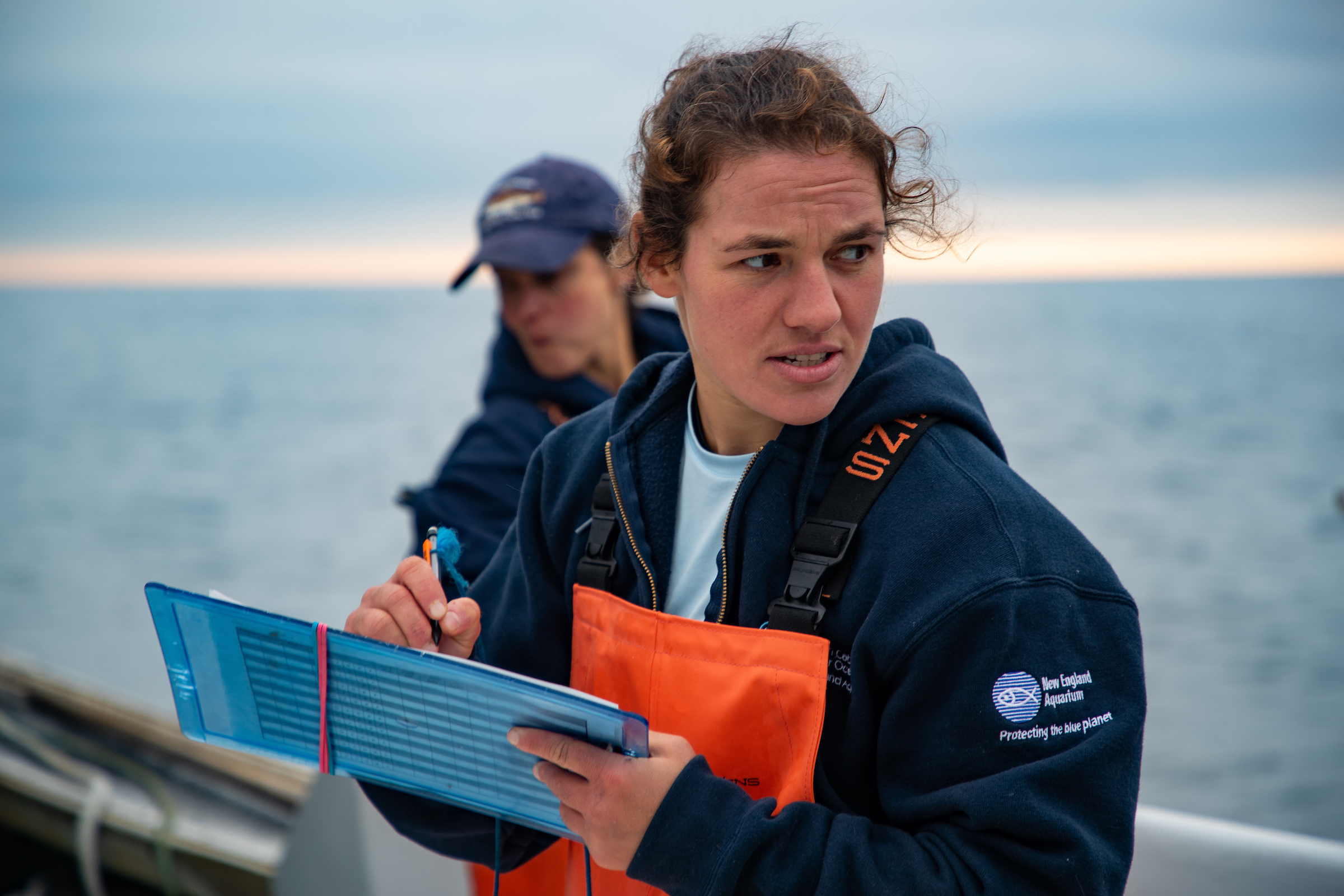
Emily Jones, Associate Scientist
Reading Never Cry Wolf by Farley Mowat had a big impact on me when I was young. Mowat was a naturalist who was sent to observe wolves in northern Canada in the late 1940s. At the time, people believed wolves were vicious killers and were responsible for the declining caribou populations. Simply by questioning, observing, and being open-minded, Mowat found this was not the case. His subsequent writings about his experiences helped change the public’s mind about wolves. This taught me how powerful science can be and how we can tell stories about science to make positive change. It made me want to be able to tell stories like that someday.
Also, when I was about 8, my grandfather walked me down to the pet store and bought me a beta fish, and I haven’t looked back since.
Heather Pettis, Research Scientist
“The ocean, animals, and problem-solving were all early passions of mine, so becoming a marine biologist was a great fit. I’m fortunate to have studied and worked with many amazing women throughout my education and career who pushed me to think critically and modeled leadership in a field that historically was not led by women. For all of them and the experiences we have shared, I am thankful.”

